
You said you couldn’t remember the time we almost ran away. Do you really not remember? It’s funny how I assume you must. You were about six, I think, and Hen made me think we were going to do it. It was while we still all shared a room. Do you remember that?
There wasn’t much to run away from, you’ll probably say. Our bedroom was pink and musty. We had a dresser drawer full of magazine clippings, mainly boy band members, and also some prayer cards with the pope’s face that one of us had probably stuffed in there while cleaning up. Hen had the wide bunk under mine, and I could slip down the ladder at night and lie spooned with her there if I didn’t wake her. Sometimes I’d find you with her already. I wonder if you remember that.
Your hair was very red back then. I was jealous of you for it and mean about it. You and I were the young ones, to my chagrin, but we pretended a lot together. Whenever Hen pretended with us, the game would become wonderful.
“We are in Arabia,” she told us once, as we made our slow ascent of the staircase, which was a sand dune that day. “We’re riding dromedaries.” I thought it was an animal she’d made up. I imagined something like a Chinese dragon. When my dromedary started to fly Hen said only, “He hasn’t had a drink in days, remember. Don’t let him wear himself out.” So I had him land and plod obediently behind her. It took us three hours to get up that dune.
You were sometimes a little behind in the games. I know we’d take that out on you. You wanted to know the rules but the rules kept changing. Sometimes I changed them on purpose to make you feel small. Sometimes Hen got sick of our smallness and left the game without warning, leaving me bewildered. I’d be cruel to you then, I think.
But I thought I always knew when she was pretending.
• • •
What happened was one afternoon I found her curled in her bed with her face to the wall. I lay down beside her and pressed a hand into her back. She sniffed hard and I understood she’d been crying. It all seemed very real.
She rolled toward me. Her face was very close, her eyes red. She said, “Cindy, we have to run away.”
Now that I write it I realize it was not so simple as I figured afterwards. Then I felt only that I’d failed to understand what was real and what was pretend. It made me feel stupid and little. But I wonder about it now. I think perhaps Mum and Dad had started fighting. Or there may have been something else. I always wondered if there were something else. Maybe you know.
She said, “We have to run away,” and my mouth went dry. I stared at her. I wasn’t altogether opposed to running away, as long as we were running toward something nice, but the seriousness of her face frightened me.
“Where?” I asked.
I don’t think it was the question she’d expected. It’s not the question I’d ask if I could go back and be eight years old again. She swallowed and looked at the ceiling for a minute.
“To the woods,” she said.
This made me feel a bit better. I loved the woods. I liked to imagine living there. The woods were just a block away and we’d built some forts in the bushes already.
I said, “Okay. Tonight?”
“Yes.” She took my hands. “Tonight. Don’t tell anyone.”
“Not even Sammie?”
“We’ll tell Sam. We’ll bring her too. But you can’t tell Mum and Dad. None of your friends.”
I wouldn’t, I promised her. But I was a bit disappointed about bringing you. For a moment it seemed like a wonderful adventure I was going to have with Hen, just the two of us, which was something that never happened anymore.
When I found you I took you to a corner of the den, made you stand right against the wall, and I told you, with hard low words, “We are going to run away.”
I saw you grow frightened, more frightened than I’d been. I thought you might cry and I put a finger under your nose. “Don’t you dare cry, or Hen and I will never speak to you again.”
Everything in me was grim. Everything in you seemed terrified.
“But why?” you asked me.
It was the question I should have asked Hen and I didn’t know the answer. So I said, without thinking, “We’re in serious danger, and everything depends on you being quiet.”
And you were quiet. You watched me all through dinner and hardly ate a thing. Hen stayed up in our room, I think. I don’t remember Mum or Dad saying much at all, but I was stuck in my own head that evening, wondering what would happen next.
Right after we turned the lights off in our bedroom that night, Hen got up and said, “I’ll be in the bathroom.” I watched her disappear, a silhouette cut out of the brightness through our door until it swung shut behind her. I couldn’t remember if this was part of the plan.
“Cindy.” Your voice out of the dark. “What’s happening?”
“Shh.” My heart was thrumming. For reasons I couldn’t guess, I felt sick. I remember thinking faster than I’d ever thought. “We’re supposed to meet her outside.”
“How?”
I said, “We’ll climb out the window.”
It was something I’d often thought about but never done. The trellis reached almost to our window, after all. I got down from my bunk and wrested the sash open.
“You go first, Sammie,” I whispered.
I can’t believe you don’t remember that. I have never felt more outside myself than in that moment. I was pretending as hard as I could, as if believing it fiercely enough could make it real.
Though you were across the room, I could feel somehow your small body tense and shaking in the dark.
“Me?”
“You’re littler. You won’t break the trellis.”
Maybe you forget because it didn’t feel real. For me it didn’t feel real. I was watching a girl tell her sister to climb out the window and wondering what each of them would do.
You came up to the sill beside me. I couldn’t hear you breathing. I put my hand on your back and whispered, “Go, Sammie.”
And you went. Little body out the window like the wind had caught you up in its hands.
I was frozen for a moment, and then I leaned out. “Sam!”
“I’m here,” you said. You were only a voice. “I fell part of the way but I’m okay.”
Which meant, unfathomably, that I had to climb out too. If only that unreal feeling had lasted. Everything was much too real in that moment. But what could I do?
I remember the windowsill rubbing rough against my thighs as I swung my legs out, shaking. The paint must have been flaking off on the outside. I slid down on my stomach, arms stiff as death as I gripped the inside edge of the sill. One of my feet found the trellis and I thought, for a second, that this would be fine. I leaned my weight on it. There came the snap like stepping on a twig in the woods and then I was tumbling through the air.
I landed in a bush. Maybe you’d landed in it first. I remember the moment I realized I was not dead: it was the moment before I realized my ankle was broken.
My screaming brought Mum and Dad out, of course, and Hen. The rest of the night was cars and hospital waiting rooms, delirious cups of hot chocolate sometime around bed at four a.m. In the midst of this, naturally, our parents asked me what had happened, but before I could say anything, Hen told them she’d put us up to it. It was a game, she said. We were pretending to run away. Only she hadn’t realized how seriously her little sisters would take it—she felt sorry, she said, for seeming dishonest. She would be more truthful about our games in the future.
I remember the look on her face when she said it: she was like a medieval penitent, stretched thin by the pull of remorse. So what could I do but believe? I was an idiot; I was a child; I didn’t understand a thing. I fell asleep crying that morning, but only a fraction of it was from the pain in my ankle.
It was very soon after that that Hen convinced Mum and Dad she needed her own room. I don’t think she played with us much afterwards. I’d load you, as my donkey, with a laundry-basket saddle when we climbed the staircase, which was the Grand Canyon, but Hen would be locked in her own little room, doing I don’t know what. And of course not many years after that she left us, suddenly, for good.
• • •
It was kind of you to ask me about this. I’m glad I’ve thought it through and written it down. But I reach this point—and I realize I don’t know if you meant it when you said you couldn’t remember. Write me about it sometime, you said, as we left Mum at the hospital. But you had that look, too—I ought to have learned to notice that look. Did you want me to remember it? Did you want me to tell you my version of things?
I really don’t know anything, Sam. If I could slip down some ladder and cuddle into a warm musty space beside you, and beside our Hen, I suspect there would be less lie in that than anything I could write to you. And I don’t mean that we lie to each other, really. It’s just that the truth is a very hard thing to tell.
these words by Natalie Morrill were inspired by the work of Evelyn Bencicova
SHARE this collaboration!

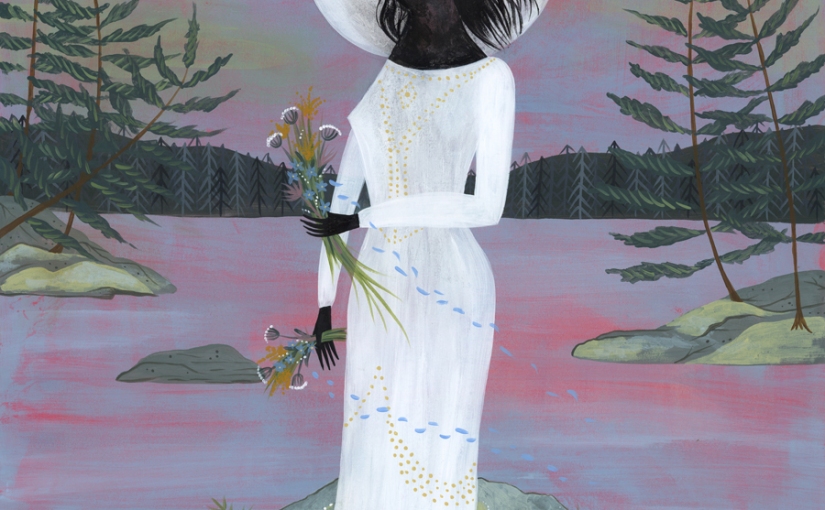







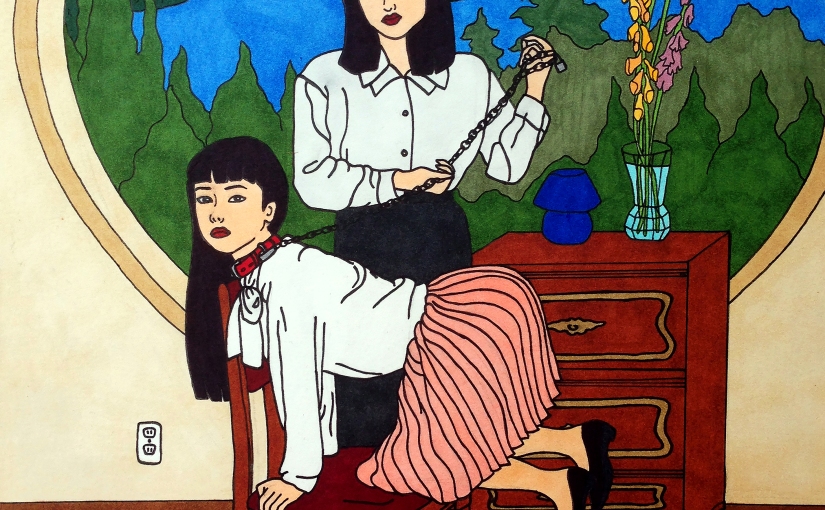

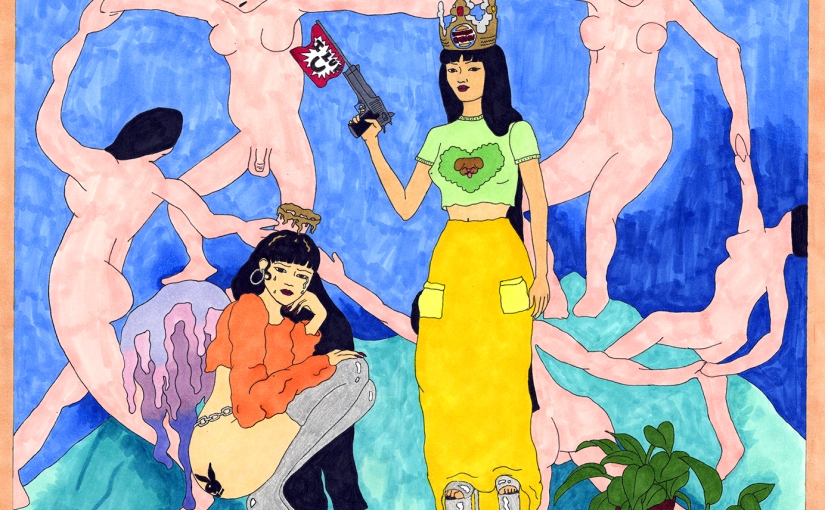



























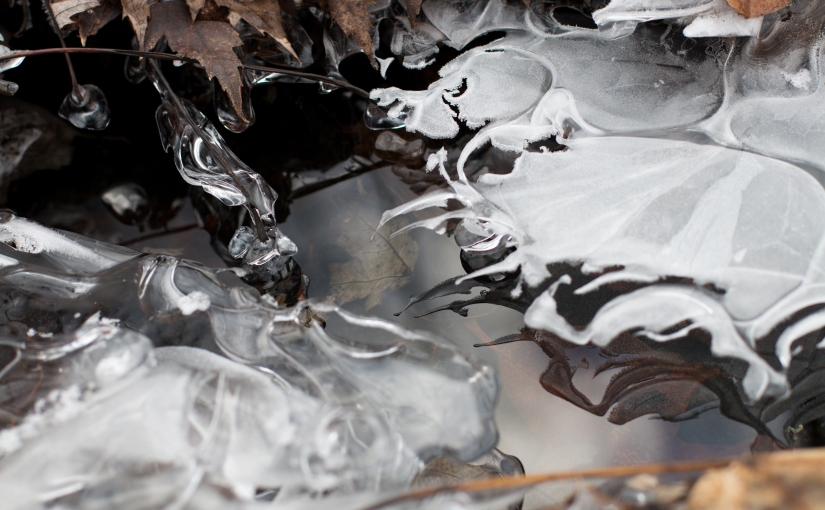










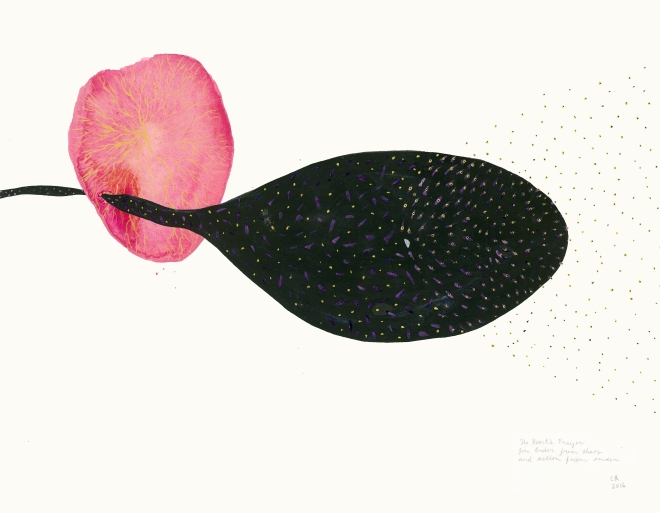












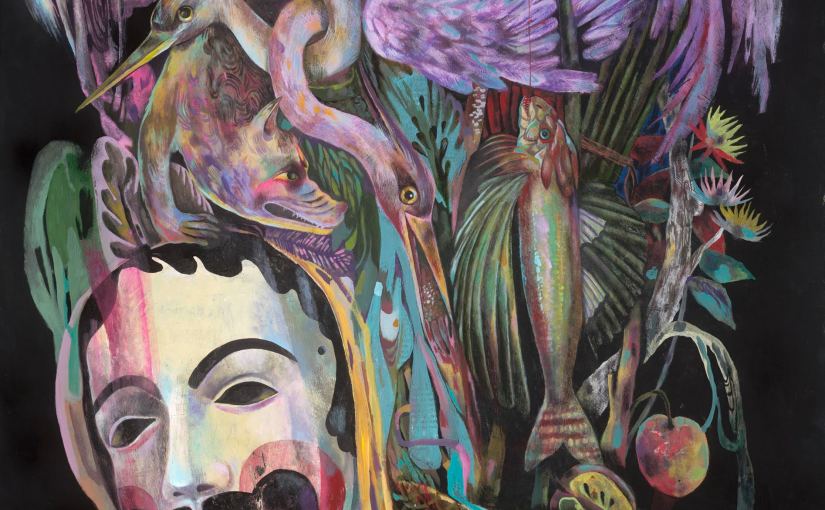






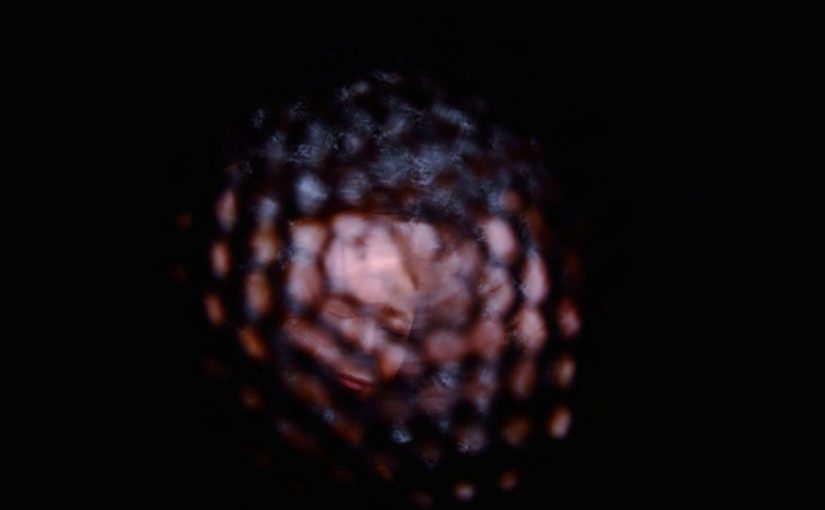





























You must be logged in to post a comment.